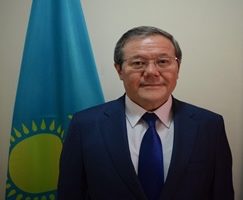
In the first quarter of the macroeconomic reform period, Ethiopia was able to generate 1.5 billion USD in export earnings. With continued efforts in the current fiscal year, the nation could potentially earn up to 5 billion USD, which would be a 1 billion USD increase from the previous fiscal year.
As a result of the macroeconomic reform implementation, Foreign Direct Investment (FDI) has grown by 6.4%. Creating favorable incentives and an investment-friendly environment has contributed to this growth. Ethiopia’s abundant land, renewable energy resources, and skilled workforce have made it an attractive destination for foreign investors.
Furthermore, the Ethiopian Government has not taken any commercial loans in the past six years. Foreign debt payments, which were once 30.6% of the GDP, have now been reduced to 13.7%. The government aims to further reduce the debt burden to below 10%, which could enhance the country’s ability to attract foreign loans while gradually achieving financial self-sufficiency.
During the last quarter of the fiscal year, foreign remittance inflow reached 3.4 billion USD, showing significant growth compared to the previous fiscal year’s 400 million USD. The introduction of the macroeconomic reform program is expected to attract 27 billion USD in the current fiscal year.
Prime Minister Abiy has indicated that the macroeconomic reform has rescued the Commercial Bank of Ethiopia from total bankrupted. The bank has managed to secure 900 billion birr from access to extended bond. The successes achieved by the CBE will set an example for the rests of the banks in the country. Now CBE has a reserve fund of 3.5 trillion birr. The number of banks operating in the country has now ached 32 and 50 million clients are now using mobile banking facilities in the country.
We can reduce inflation only by increasing production and productivity, the PM stressed. Modernizing the trade system of the country can also help to reduce inflation. The government has earmarked 300 to 400 billion birr to subsidize citizens in low income bracket. Meal sharing, school feeding, Sunday markets are all inputs made by the government to ease the economic burden of those with lower income. Moreover 249 citizens were provided with housing facilities. This was in part accomplished through public private partnership initiatives.
During the current fiscal year, it is planned to provide employment opportunities for 4.3 million citizens. Out of this some 700,000 citizens will have access to foreign employment opportunities. Over the first quarter of the current fiscal year, 100,000 citizens were provided with employment opportunities at overseas. More than 26,000 individuals were provided with online employment in coding and data analysis services.
Retaining the above mentioned achievements and implementing the planned activities will naturally not be conducted on a red carpet as there are still more challenges the country needs to resolve.
Economic development of the country is being seriously challenged by counterproductive activities of armed groups in the country who are not ready for negotiation but taking power by force of arms which they expect to get from some neighboring countries. The fragile situation on the porous borders of the country has continued to become a breeding ground for contraband trade including arms trafficking. This creates an unfavorable situation for potential investors who are planning to come to the country with FDI.
On the other hand, despite marked improvements in mining and exporting key economic commodities like gold, there is more to be desired in exploiting natural gas and petroleum potentials of the country. With the final completion of GERD and the Koisha hydroelectric dam, there is a felt need to protect these and other infrastructure facilities and mega projects which are completed or being constructed anew.
The countries who exhibit red eyes on the nation’s fast economic development could create sabotage on the major plants and economic corridors of the country. Community mobilization on the protection of such national assets is an urgent task that should not be neglected. The government has accomplished huge tasks in resettling IDPs some of which are still waiting for support at various centers across the country.
The country is still facing climate change induced drought and related natural disasters like landslide and middle level of earthquake tremors in the eastern part of the country which demands improving and modernizing the early warning system for disasters by using IT resources and AI. All told, the future is bright for Ethiopia which hopes to get access to the Red Sea and ports. More is in store for the nation.
Editor’s Note: The views entertained in this article do not necessarily reflect the stance of The Ethiopian Herald
BY SOLOMON DIBABA
THE ETHIOPIAN HERALD SATURDAY 9 NOVEMBER 2024




